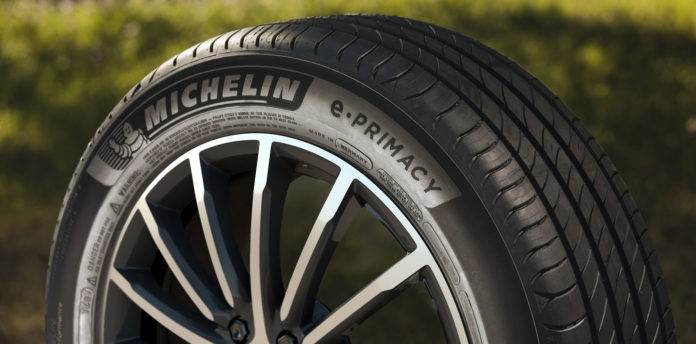Michelin and French biochemistry company Carbios are working on a plastic waste recycling technology for PET plastic waste in order to create a high tenacity tire fiber. This agreement marks a new step towards the brand’s goal of having 100% sustainable materials in the manufacture of its tires by 2050.
First of all, Michelin does not want to make tires only from recycled plastic. Plastic, and in this specific case, single-use polyethylene terephthalate (PET) plastic bottles that account for a large portion of yearly pollution, is just one of the many ingredients that make up the tire. Michelin has successfully tested and applied Carbios’ enzymatic recycling process for PET plastic waste.
Carbios’ enzymatic recycling process uses an enzyme capable of depolymerizing the PET contained in various plastics or textiles, such as bottles, trays, polyester garments, etc. When combined with Carbios’ enzymes, the PET plastic breaks down into two purified monomers. Michelin can then re-polymerize the ingredients into new PET tailored for its purposes. This innovation allows the infinite recycling of all types of PET waste, as well as the production of 100% recycled and 100% recyclable PET products that retain a quality equivalent to the original PET.
After being re-polymerized as PET, the monomers derived from Carbios’ process, which used colored or opaque plastic waste (bottles, jars, etc.), allow obtaining a high-strength fiber that meets the tire giant’s technical requirements. The fiber obtained is of the same quality as the one from virgin PET, processed with the same prototype installations. This high tenacity polyester is particularly suitable for tires due to its breakage resistance, toughness, and thermal stability.
In this way, Carbios’ enzymatic recycling process enables Michelin to respond in part to its objectives and introduces tires to a truly circular economy. According to an ambitious plan, Michelin has committed to reaching 100% sustainable materials (of renewable natural origin or recycled) in the manufacture of its tires by 2050, reaching 40% as of 2030.
“We are very proud to be the first to have produced and tested technical fibers for use in tires, reinforcements made from colored bottles treated with the enzymatic technology of our partner Carbios,” stated Michelin polymer research director Nicolas Seeboth. “These high-tech reinforcements have demonstrated their ability to provide performance identical to those from the oil industry.“
“In 2019, we announced the production of the first PET bottles with 100% Purified Terephthalic Acid (PTA) from the enzymatic recycling of used plastics,” said Cabios scientific director Alain Marty. “Today, with Michelin, we are demonstrating the full extent of our process by obtaining, from these same used plastics, a recycled PET suitable for highly technical fibers.“
There’s still a long way to go before Michelin can claim 100% sustainable tire manufacturing, but the new PET plastic waste recycling program is one giant leap toward that goal.
